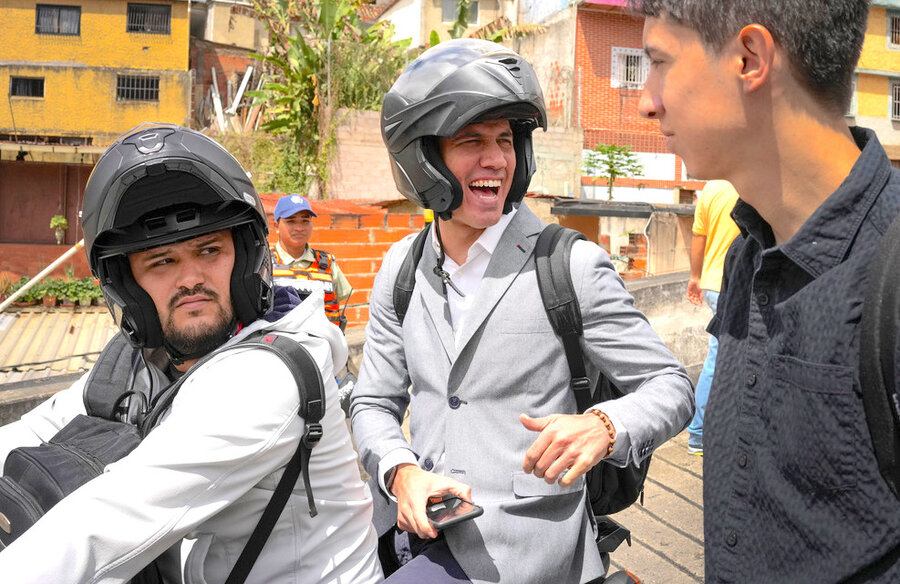Venezuela’s latent civic reserves
Loading...
Ten years ago, Venezuela had the fourth-largest economy in Latin America, anchored by the largest oil reserves in the world. Since then, its economy has collapsed by more than 86%. More than 1 in 5 Venezuelans have left, forced by economic hardship, persecution, or criminal violence to seek freedom and opportunity elsewhere.
The exodus is an oft-cited measure of the misrule of socialist autocrat President Nicolás Maduro.
Yet the flip side of that picture reveals another story. Nearly 80% of Venezuelans have stayed put, reflecting in part an expectation among many that justice and equality will return.
“The Venezuelan case ... is an example of a country where democratic forces refuse to die,” Amherst College political scientist Javier Corrales said in an Americas Society/Council of the Americas podcast. “And this has meant that autocracy hasn’t really consolidated. There is a story here of hope – that is, the resilience of democratic forces in Venezuela.”
The resiliency has lasted a long time. In 2013, Mr. Maduro inherited the rule of the late Hugo Chávez as well as an economy kept aloft with petrodollars. A crash in oil prices then led him down a harsh autocratic path. A 2018 presidential election resulted in an awkward political cleft. Mr. Maduro claimed victory. Parliament declared his rival, Juan Guiadó, as president, a move backed by nearly 60 countries and followed up with tougher economic sanctions.
Yet last year the winds shifted. A new, leftist government in neighboring Colombia espoused engagement with Venezuela over isolation. The war in Ukraine sent the West in search of new petroleum. International recognition of Mr. Guiadó has fallen off. The Biden administration enabled Chevron to resume limited oil production in Venezuela. Talks hosted by Mexico between the government and opposition parties restarted last fall to prepare for elections next year.
Backed by his patrons Cuba, Russia, and China, Mr. Maduro now seems to be enjoying a new lease. But autocrats have a way of revealing their weaknesses. In January, he pitched new legislation effectively criminalizing civil society organizations and further curbing freedom of speech and assembly.
It isn’t hard to see why. The hope of elections has added to popular demands for change. The Venezuelan Observatory of Social Conflicts, a human rights watchdog, counted 1,262 protests during the first 42 days of 2023, a 136% increase over the same period a year ago. Teachers and trade unionists have turned out in swelling protests. “This time we’ve lost our fear,” one protester told Bloomberg.
Such sentiments are echoed in a new book, “How to Stand Up to a Dictator,” by Filipino American journalist and Nobel laureate Maria Ressa. “I refuse to live in a world like this,” she wrote. “I demand better. We deserve better.”
Mr. Maduro may be emerging from international isolation. But his people demand a just and equitable society. By that measure, he has already been handed defeat.







